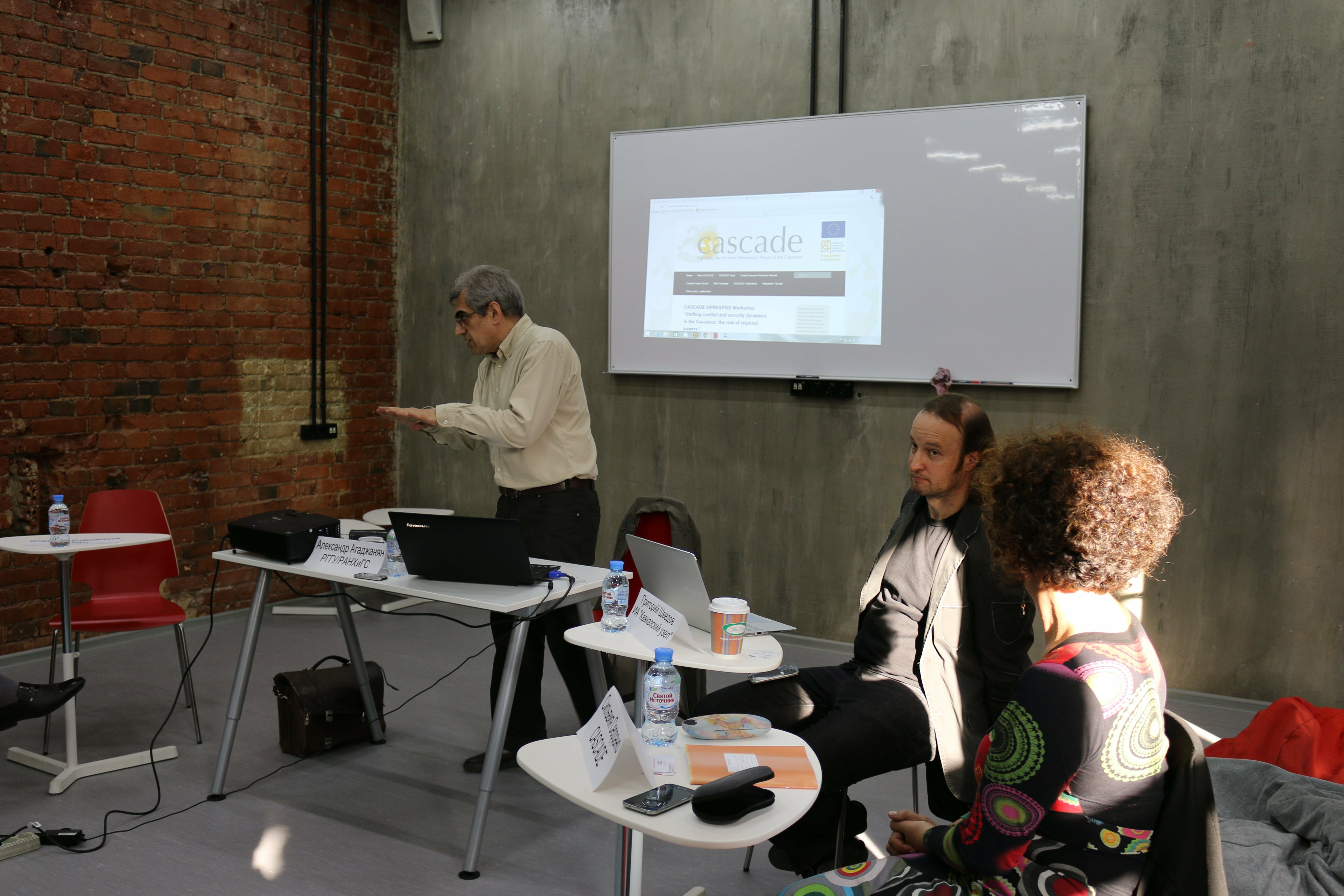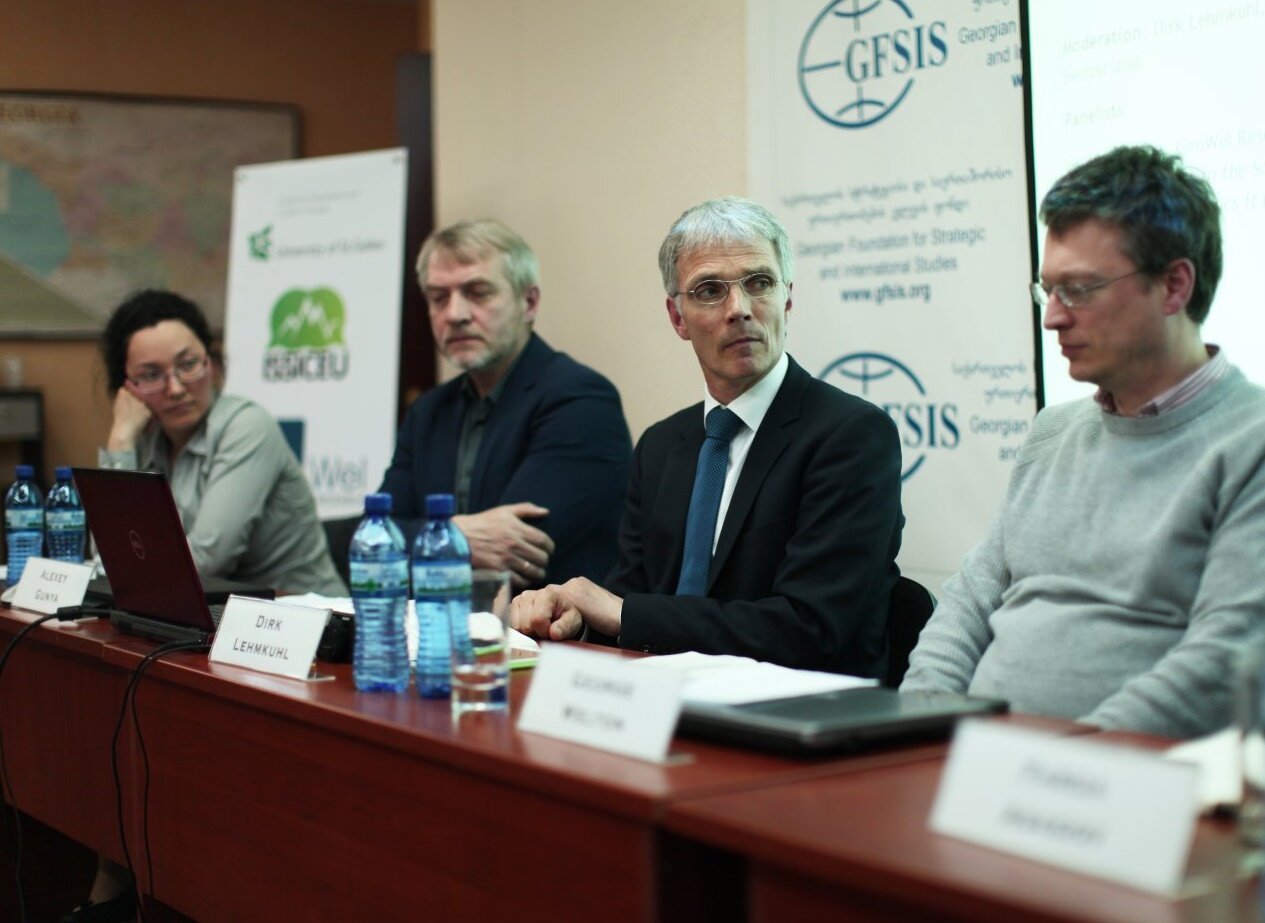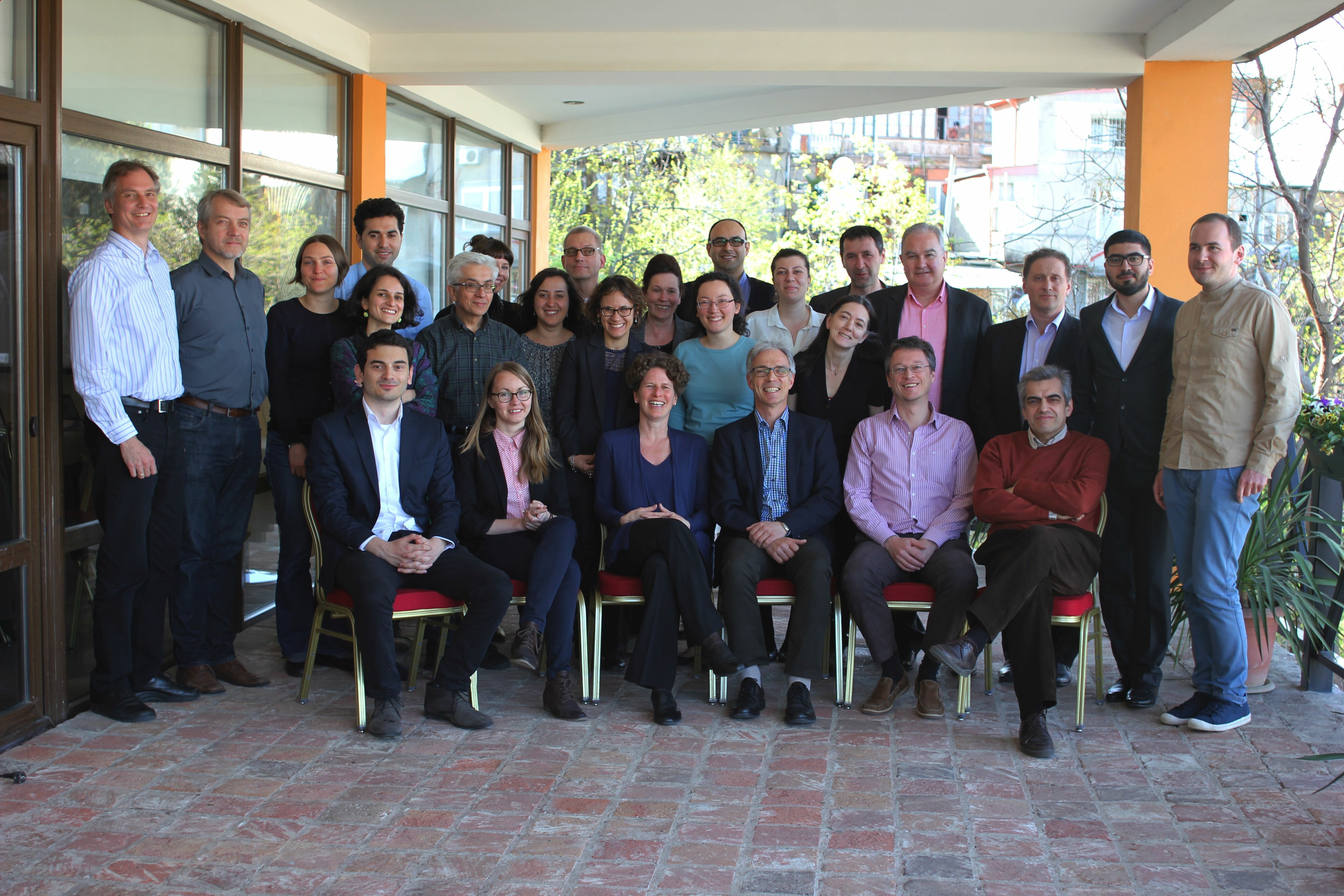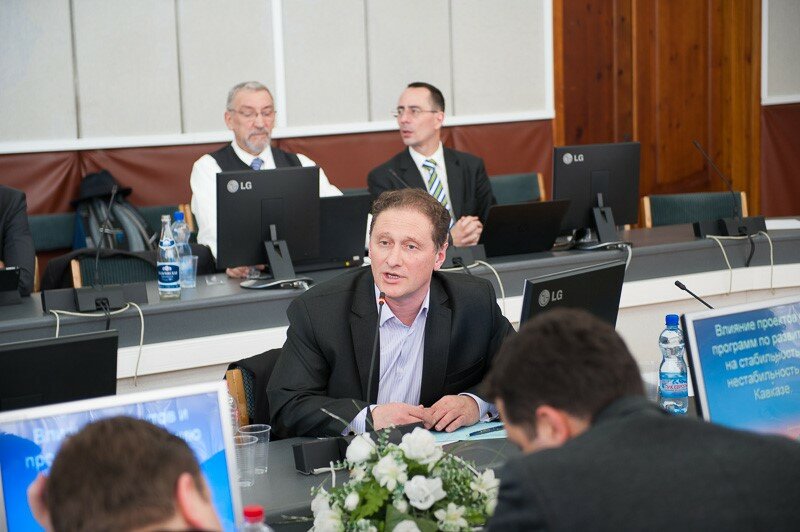In particular, Alexander Agadjanian from the Russian State University for the Humanities started the round table, by providing an overview of the role of religion in the Caucasus. He discussed how different aspects of religion are embedded in the fabric of the region, ranging from political culture, social structure and social mobility, to national or ethnic identification. Furthermore, Alexander Agadjanian elaborated on how religion relates such notions as "stability", "security", "development" and "democracy".
Dr. Silvia Serrano from ISSICEU sister project CASCADE outlined the relationship types between religion, state and societal groups in Georgia and Armenia. Dr. Timur Tenov and Dr. Murat Shogenov from the Kabardino-Balkarian State University touched upon the role of islamic symbols and social networks in the local government in the North Caucasus. Grigorii Shvedov, director of the website "Kavkazskiy uzel", discussed the religiously motivated violence in the Caucasus and suggested that recently increasing pressure of the law enforcement agencies might lead to the new wave of violence in the region.
In addition, a newly published report "North Caucasus and a modern model of democratic development" by Starodubrovskaia and Kazenina triggered lively discussion among participants. The report's statement that fundamentalist islam could give a potential for the development of modern values in the Caucasus was critised by Prof. Igor Alexeev from Russian State University for the Humanities and Dr. Timur Tenov and Dr. Murat Shogenov from Kabardino-Balkarian State University.





